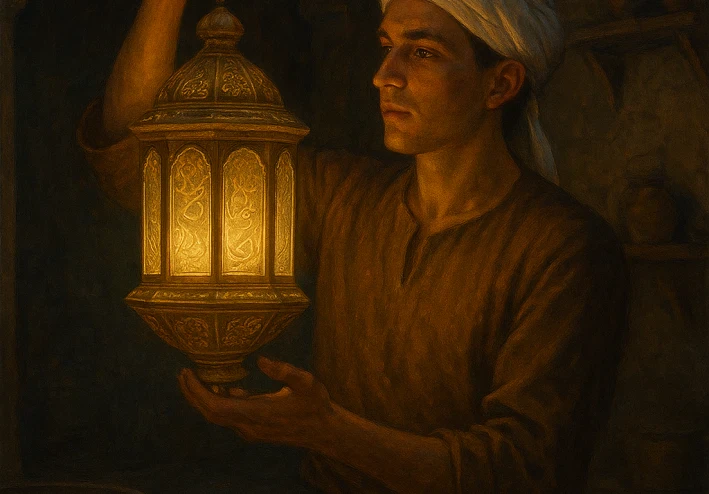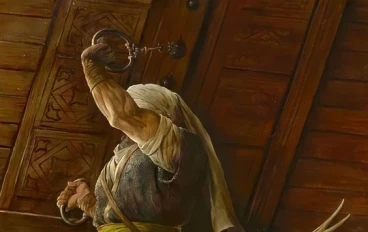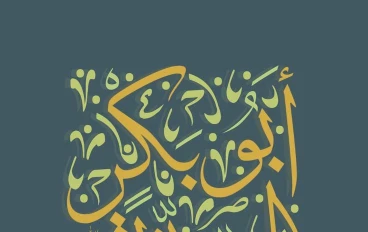
The Lantern of Sincerity
The Lantern of Sincerity
In the alleys of Fustat, where the Nile breeze slipped between mud-brick walls and the call to prayer drifted over rooftops, lived a young coppersmith named Yusuf. He and his mother slept above the tiny workshop his late father left. Business was thin, yet hope stayed. With Ramadan near, Yusuf prayed that Allah would send him work honest enough to keep their lamp burning.
One afternoon a wealthy merchant swept into the shop, cloak perfumed and sandals bright with new leather. He set a purse on the bench. “Craft me a lantern to crown my courtyard,” he said. “Engrave verses, gild the edges, dazzle my guests. Deliver in three days.” The clink sounded like relief, but the man’s tone troubled Yusuf. It felt like an order to rush, to polish the surface and neglect the soul.
That evening Yusuf walked to the mosque and found Shaykh Salim teaching beneath an arcade cooled by reed mats. The shaykh spoke of ihsān—doing every deed as though one sees Allah—and quoted: “Allah loves that when one of you does a task, he perfects it.” Yusuf’s heart tightened. Haste would mean thin copper, sharp seams, and a wick that smoked. “My son,” the shaykh smiled, “let your hands remember Who sees, even when no one else does.”
Before dawn he began. He chose thicker brass, cut it clean with his father’s whetstone, and annealed each petal by fire until it glowed. He traced the Basmala slowly, not with tangled knots but with letters wide enough for a humble eye to read. The gilding he mixed true, resisting the temptation to stretch it with alloy. Between heats he whispered salawat, and when a hungry widow paused, he passed a warm loaf without a word.
On the third day the lantern was nearly complete, but the final seam would not sit. Yusuf could have hidden the flaw beneath a collar of chased leaves. He set down his hammer, reopened the join, and lost hours. By sunset the seam ran smooth and strong; the glass chimneys nested without rattle; the wick rose like a small, obedient promise. He polished the dome until it framed his mother’s smile in its softened mirror.
The merchant arrived at dusk, impatience bright in his eyes. “It is later than I ordered,” he snapped. “Shall I also pay for your piety?” Yusuf bowed. “Pay only what is just,” he said. “But know that work rushed for men fails at night.” The merchant huffed and left, promising to return with a judge. Fear pricked Yusuf’s chest, yet the lantern throbbed with a calm, steady weight.
That night a storm rolled from the desert, drowning small fires. The mosque’s old lamps coughed smoke and died, one by one. Yusuf, passing with the lantern wrapped in linen, heard children crying inside. He entered, hung the new lamp, and lit the wick. A clean flame climbed into the dome, steady as dhikr. In that soft circle of light, the imam resumed recitation, and rain sounded like beads on stone.
Morning found the merchant at the mosque door, judge in tow, and half the quarter praising the lamp that had not flickered. The judge examined the work and nodded. “This lantern belongs where it served.” Yusuf turned to the merchant. “If you permit, let last night count as delivery—waqf for the House of Allah.” The merchant’s face softened. “Keep the payment,” he said. “Teach me to buy light with sincerity, not noise.” From that day, Yusuf’s shop glowed with a barakah no coin could measure.





































